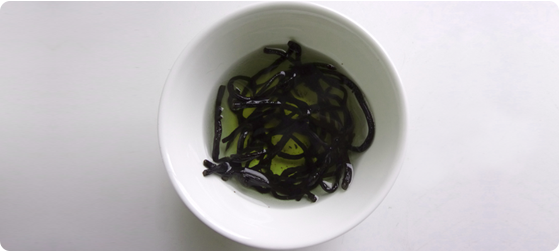-
Seaweed

USDA Seaweed Safety
In a project led by New York Sea Grant, the NSGLC received funding from USDA and will work in collaboration with New York Sea Grant, Connecticut Sea Grant, the University of Maine, and Farmingdale State College on a seaweed food safety project. The goal of the project is to develop a seaweed hazards and control guide for the growing seaweed industry on potential food safety hazards related to seaweed products and potential controls to ensure safety. The development of a new hazards and controls guide is a crucial next step in the process of developing an effective seaweed-specific food safety training program for the seaweed industry.
Seaweed Hub
The Sea Grant network has established a National Seaweed Hub to serve as a science-based, non-advocacy resource for the domestic seaweed and seaweed aquaculture industry. The NSGLC has served as an active participant in the Seaweed Hub, leading the Regulations Workgroup in Phase I of the project. In Phase II of the project, the NSGLC will be working on summaries for the primary seaweed states which provides basic information about licensing and permitting requirements for aquaculture, as well as legal research on processing requirements.
Seaweed Food Safety Guide
The National Sea Grant Law Center worked with New York Sea Grant and Connecticut Sea Grant to create a guide to help the emerging seaweed industry understand the prevailing regulatory requirements surrounding the production of seaweeds as foods. There are currently two regulations that are being used to regulate seaweeds at either the federal or state level, the Food Safety and Modernization Acts Preventive Controls for Human Foods regulation, which includes current Good Manufacturing Practices, and the Seafood HACCP regulation. This guide will help the reader understand the similarities/ differences between the two regulations to be more informed and determine how their operations will be regulated federally.
Seaweed Food Safety
Best Practices for Regulating Seaweed as Human Food
In 2019, the National Sea Grant Law Center, in partnership with Connecticut Sea Grant, received funding from the National Sea Grant College Program to enhance coordination and cooperation among states to build policy consensus as to the preferred approaches for regulating the sale of seaweed in its whole form for food. There were three components to this project: (1) conducting legal research to identify and assess potential models; (2) convening a collaborative learning workshop to engage stakeholders, and (3) conducting a literature review of the food safety hazards associated with seaweed production.
Seaweed Food Hazard Literature Review
The NSGLC partnered with researchers at UMass-Boston to conduct a literature review of the food safety hazards of seaweed production. The objective of the literature review was to compile and index the primary, peer-reviewed literature related to seaweed food safety hazards to increase accessibility for policy-makers. The literature survey will be made available through a searchable web-based platform.
Seaweed Food Safety Literature Review Database
Infographics
As part of the outreach for this project, the NSGLC prepared several infographics providing an overview of the federal regulatory framework for seaweed.
FDA Classification of Seaweed
Seaweed and the FDA Preventive Controls Rule
The FDCA Adulteration Provision
Building Consensus on Seafood Food Safety: A Collaborative Workshop
The National Sea Grant Law Center and Connecticut Sea Grant held a virtual collaborative learning workshop for state regulators on seaweed food safety on March 8 – 19, 2021.
Proceedings of a Virtual Collaborative Learning Workshop
Appendix A: Compilation of State Seaweed Provisions










